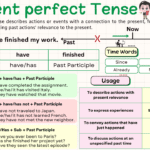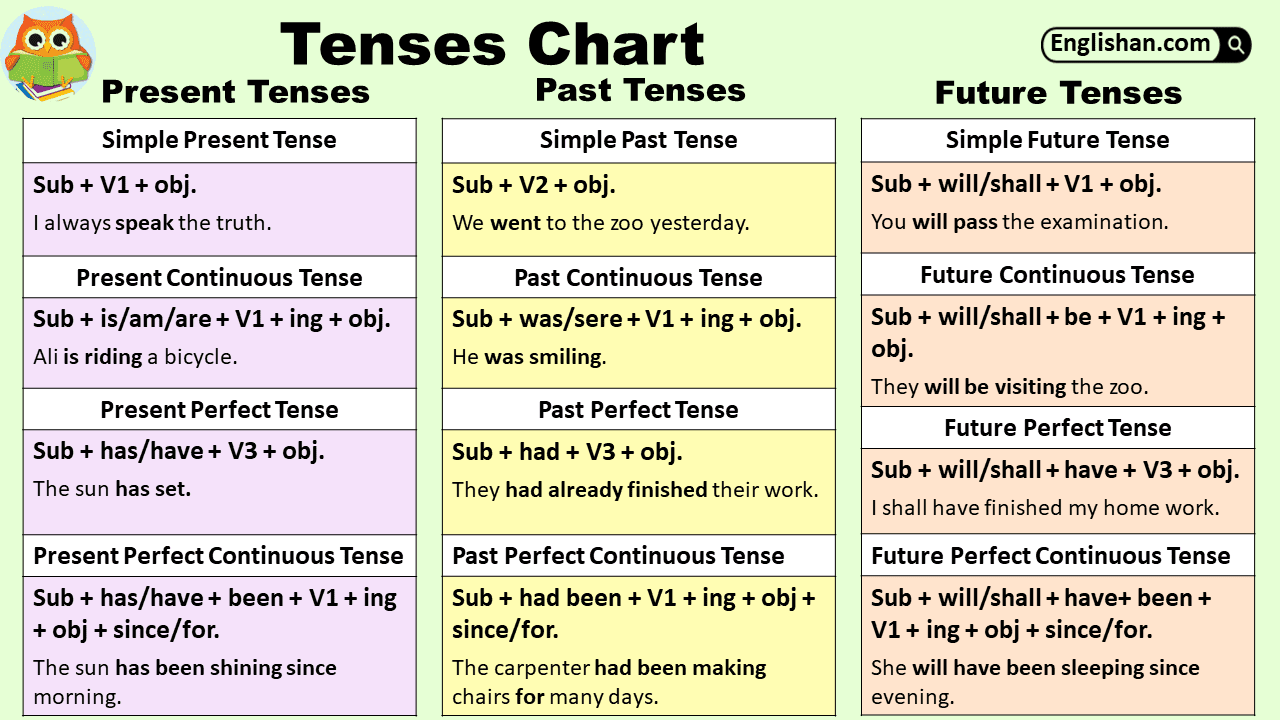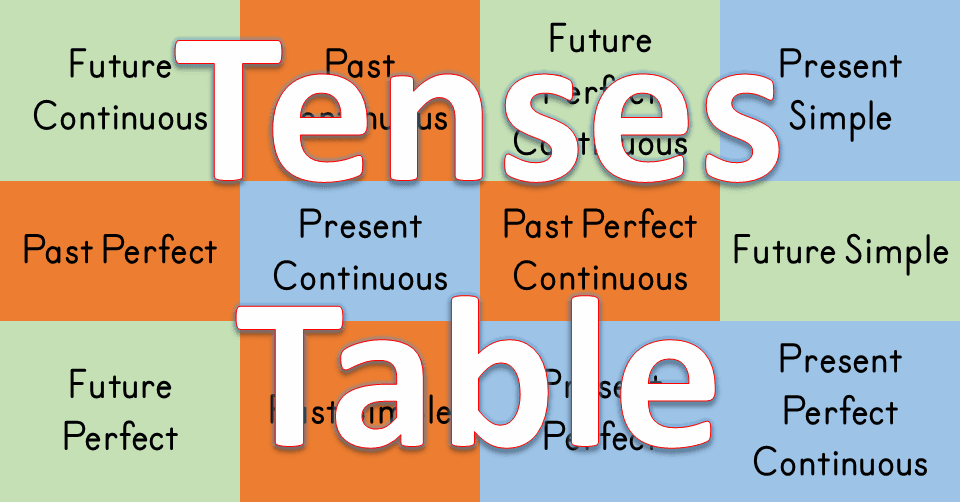The future continuous tense describes an action that will be in progress at a certain time in the future. It is formed with “will be” + present participle (verb + -ing). This tense is useful when talking about two future actions happening at the same time or showing a future activity in progress.
Future Continuous Tense Structures
The future continuous tense has four main structures based on sentence type: affirmative, negative, interrogative, and double interrogative (WH-questions). Each form uses the basic rule: Subject + will be + verb-ing

1. Affirmative Sentence Structure
Formula:
Subject + will be + verb-ing + object
Examples:
- I will be studying tomorrow evening.
- They will be playing football at 5 p.m.
2. Negative Sentence Structure
Formula:
Subject + will not be + verb-ing + object
Examples:
- She will not be attending the meeting.
- We will not be working on the project tonight.
3. Interrogative Sentence Structure
Formula:
Will + subject + be + verb-ing + object?
Examples:
- Will you be joining us for dinner?
- Will Ahmed be traveling next week?
4. Double Interrogative (WH + Yes/No)
Formula:
WH-word + will + subject + be + verb-ing + object?
Examples:
- What will they be doing at 8 p.m.?
- Why will he be working late?
Subject-Verb Agreement in Future Continuous
In the future continuous tense, we need to use the right subject and helping verb.
| Subject | Helping Verb |
| I, You, We, They | will be |
| He, She, It | will be |
| Names (Ali, Sarah) | will be |
| Plurals (dogs) | will be |
Time Expressions for Future Continuous Tense
Here are all the time expressions commonly used with the future continuous tense, along with examples:
- At 5 p.m. tomorrow: They will be preparing for the event at 5 p.m. tomorrow.
- Next week: I will be visiting my grandparents next week.
- By this time next year: She will be studying in Australia by this time next year.
- At this time tomorrow: He will be working in the office at this time tomorrow.
- In a few days: We will be starting our new project in a few days.
- Tonight: She will be baking a cake tonight.
- Later today: They will be meeting with the manager later today.
- By then: You will be resting comfortably by th
Adverb Placement in Future Continuous Sentences
Adverbs can change the meaning of the verb in a future continuous tense sentence. Here are the rules for placing adverbs:
- After ‘will be’: The adverb usually comes right after will be. Example: He will be definitely attending the concert.
- Before the verb: Sometimes, especially with adverbs like always or probably. Example: She will probably be preparing dinner.
Uses of Future Continuous Tense
The future continuous tense has several uses. It can express future ongoing actions, polite questions, or make assumptions.
Expressing an action in progress at a specific future time:
- By this time tomorrow, I will be working in my new office.
Polite questions:
- Will you be using the car tonight?
This form makes the question more polite.
Future arrangements or plans:
- They will be having a meeting tomorrow morning.
This shows the meeting is planned for that time.
Assumptions: He will be staying with us next week. This shows an assumption that staying will happen.
Short Answers in Future Continuous
Short answers in the future continuous tense help convey meaning quickly.
- Question: Will you be attending the party?
- Answer: Yes, I will.
- Question: Will they be practicing tonight?
- Answer: No, they won’t.
Question Tags with Future Continuous Tense
Question tags are used with different subjects, including singular and plural forms, to confirm information or seek agreement.
| Subject | Statement | Question Tag |
| He | He will be coming, | won’t he? |
| She | She will not be attending, | will she? |
| They | They will be joining us, | won’t they? |
| We | We will not be staying late, | will we? |
Examples of Future Continuous Tense in Use
Here are some examples of future continuous tense sentences:
Affirmative
- They will be traveling to Dubai next month.
- I will be completing my assignment tomorrow.
- He will be hosting a party tonight.
- We will be attending the seminar.
- She will be baking a cake.
Negative
- You will not be eating dinner with us.
- I will not be using the computer.
- They will not be going to the beach.
- She will not be studying at home.
- We will not be working on the project.
Interrogative
- Will they be joining the competition?
- Will you be visiting her tomorrow?
- Will Ahmed be coming to the class?
- Will she be reading the book tonight?
- Will they be having lunch at 1 p.m.?
Common Mistakes
Learners often make mistakes with the future continuous tense. Here are some common errors and how to correct them.
- ❌ He will attending the party.
- ✅ He will be attending the party.
Explanation: Always include be in the future continuous form.
- ❌ They will not working tomorrow.
- ✅ They will not be working tomorrow.
Explanation: Use will not be to form a negative sentence correctly.
Summary: Key Rules of the Future Continuous Tense
The future continuous tense describes actions that will be in progress at a certain time in the future. It follows the structure:
Subject + will be + verb-ing.
Key Rules:
- Use “will be” + present participle (verb + -ing).
- It shows ongoing future actions.
- Often used with specific time references (e.g., at 6 p.m., tomorrow at noon).
- Can describe overlapping actions (e.g., She will be studying while I’m cooking).
- Adverbs like still, already, soon are often placed before the verb (will still be working).
FAQs
The future continuous tense is used to talk about actions that will be happening at a specific time in the future.
We form it by using will be followed by a verb ending in -ing.
It is used for actions in progress at a future time, polite questions, future arrangements, and assumptions.
No, use will not be for negative future continuous tense sentences.
Both “will” and “shall” can be used interchangeably. “Shall” is less common in modern English and is often used in formal or British English.
Free Grammar and Vocabulary Worksheets Resources
- Worksheet Tenses
- English Worksheets
- Action Verbs Worksheets
- Future Continuous Tense Worksheets
- Time Expressions in English for All Tenses
You May Also Like
- Simple Present Tense
- Simple Past Tense
- Simple Future Tense
- Present Continuous Tense
- Past Continuous Tense






